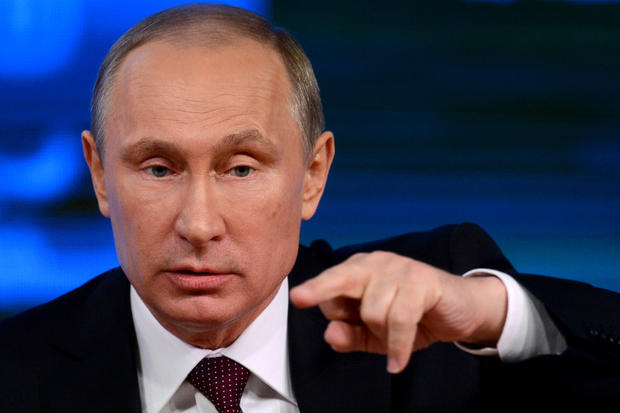Putin to pardon ex-political foe and oil tycoon Mikhail Khodorkovsky after decade in jail
MOSCOW -- President Vladimir Putin said Thursday he will pardon jailed oil tycoon Mikhail Khodorkovsky, a surprise decision that will let his top foe and Russia's former richest man out of prison after more than a decade.
The move, along with an amnesty for the two jailed members of the Pussy Riot punk band and the 30-member crew of a Greenpeace ship, appears designed to assuage international criticism of Russia's rights record ahead of February's Winter Olympics in Sochi, Putin's pet project.
Putin waited until just after his tightly choreographed annual news conference to make the announcement, dropping the biggest news of the day after journalists had already peppered him with questions, including one about Khodorkovsky's fate, in a four-hour marathon.
Putin said that Khodorkovsky, who is set to be released in August 2014, had submitted an appeal for pardon, something he had refused to do before.
"He has spent more than 10 years behind bars. It's a tough punishment," Putin said. "He's citing humanitarian aspects - his mother is ill. A decree to pardon him will be signed in the nearest time."
In October 2003, masked commandos stormed into his jet on the tarmac of a Siberian airport and arrested him at gunpoint. He was found guilty of tax evasion in 2005 and convicted of embezzlement in a second case in 2010.
Critics have dismissed the charges
against Khodorkovsky as a Kremlin vendetta for challenging Putin's power.
Asked whether he felt sorry for the two women, Putin stood by his strong criticism of their irreverent protest at Moscow's main cathedral, describing it as a publicity stunt that "crossed all barriers."
He also alleged that the Greenpeace activists were trying to hurt Russia's economic interests. He added that he did not mind that charges against the Greenpeace team were dropped under Wednesday's amnesty bill, but that he hoped that "this will not happen again."
Putin weathered months of massive protests against his rule in 2011-2012, when more than 100,000 gathered to oppose his return to the Russian presidency. A demonstration in May 2012 a day before his inauguration for a third term ended in scuffles with police.
The amnesty bill included only 8 out
of 26 people tried or awaiting trial in connection with that protest. Two of
them were freed in a courtroom as Putin's
news conference was still ongoing.
Amid a strain in Russia-U.S. ties, he also offered surprising support to President Obama by saying that U.S. National Security Agency surveillance is necessary to fight terrorism. The government should "limit the appetite" of the agency with a clear set of ground rules, he said.
The Kremlin sees Putin's annual press conference as key in burnishing Putin's father-of-the nation image.
Journalists waved handwritten posters with names of their cities to attract Putin's eye, and one succeeded by holding up a Yeti doll in a T-shirt with the name of her region. One journalist invited Putin to attend a party at her newspaper.
Many acted as envoys for their towns or provinces, asking for subsidies or state support for specific projects. Others complained about official abuses or asked for his personal patronage.
One journalist from the far east complained about a clash between the local police and drug enforcement agency. Putin ordered an immediate check. An inspection team headed to the region before the news conference was over.
